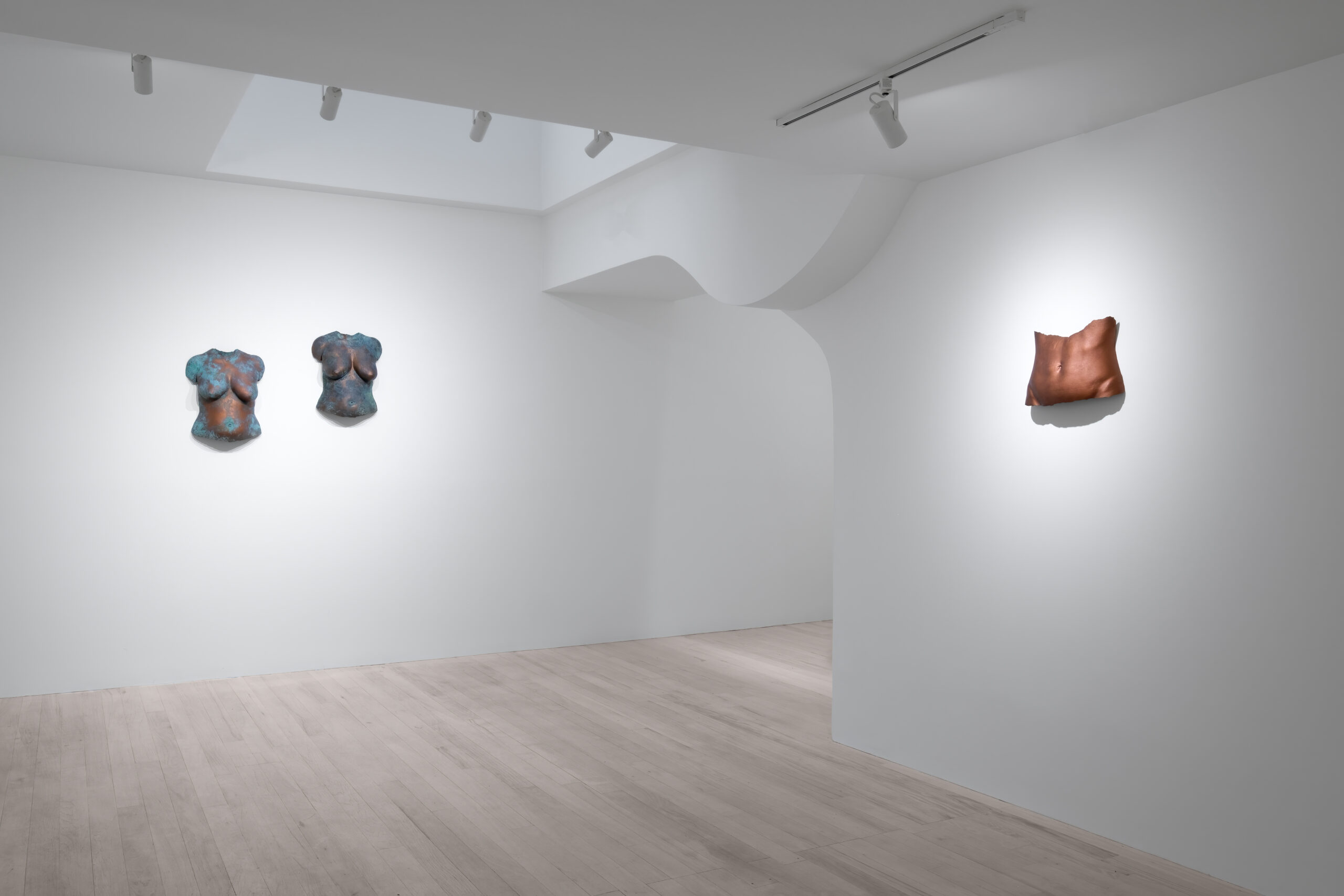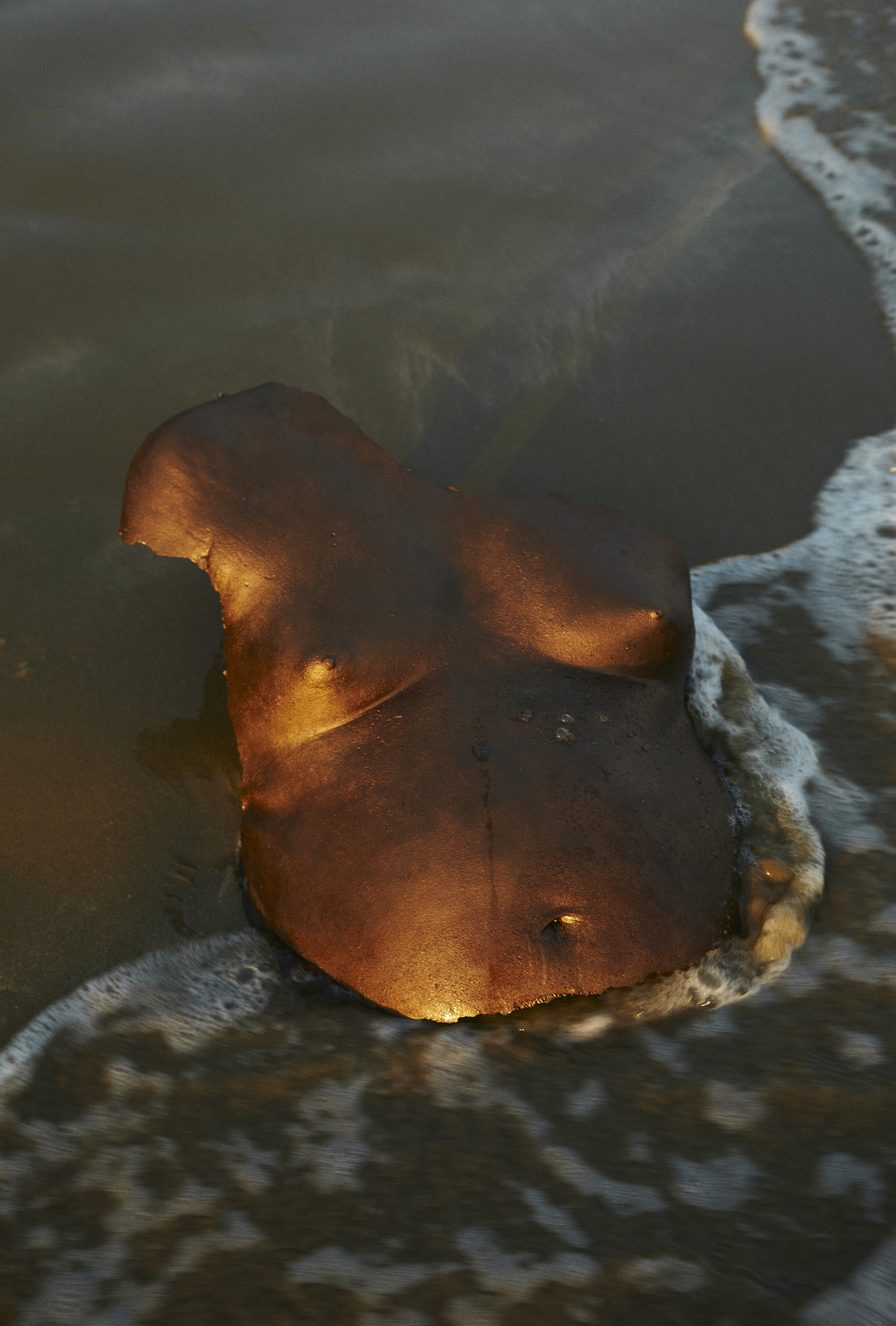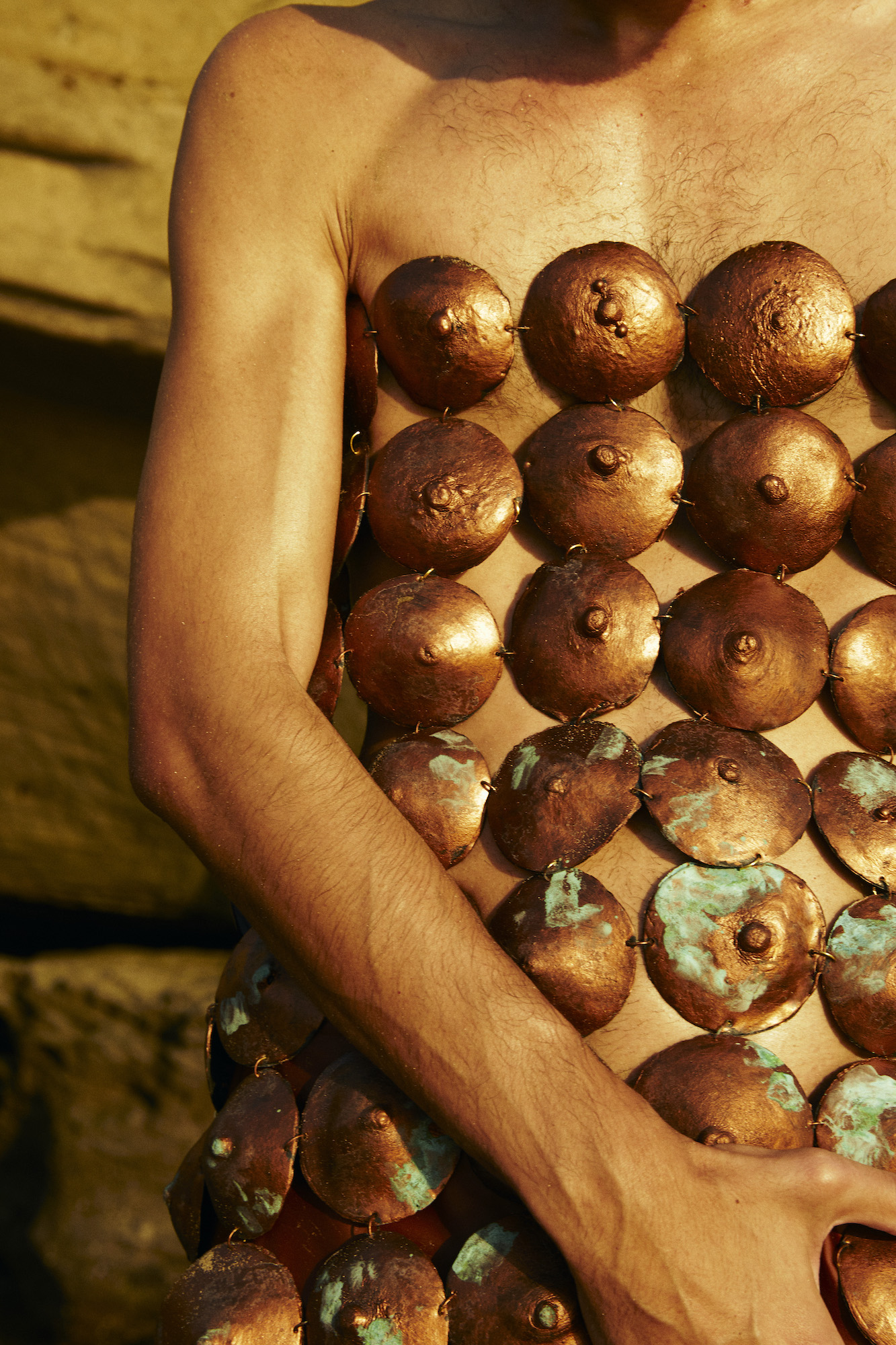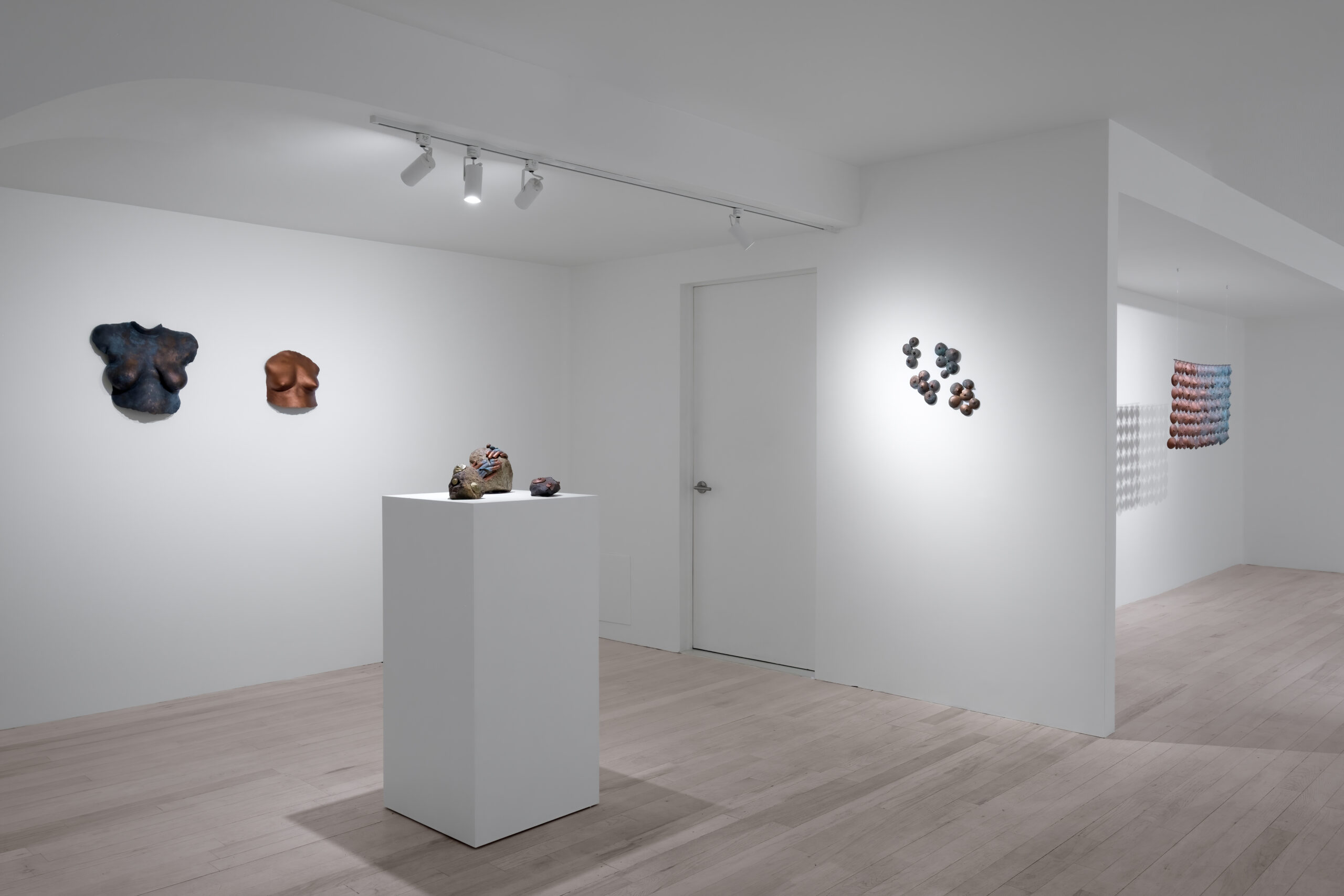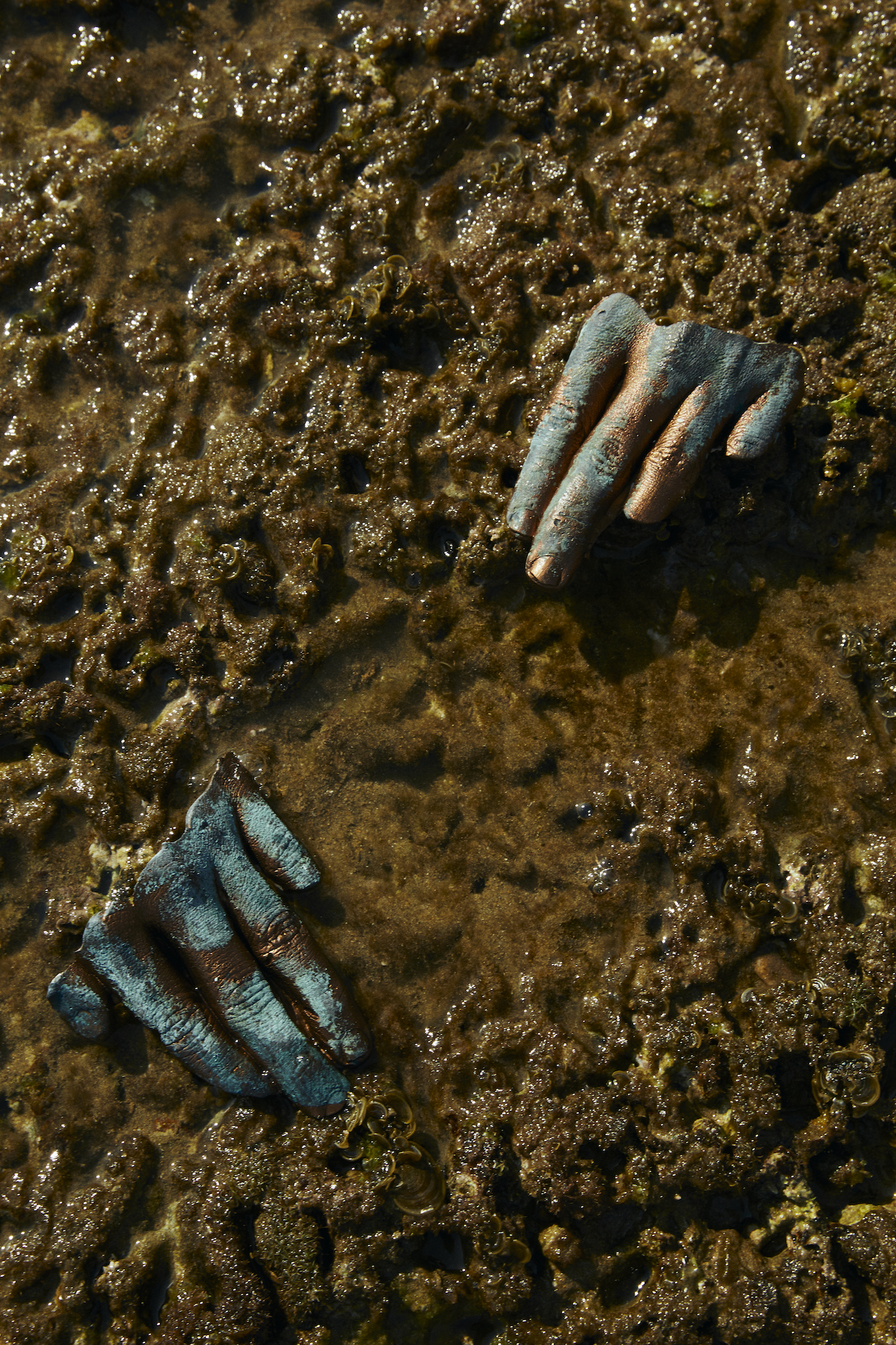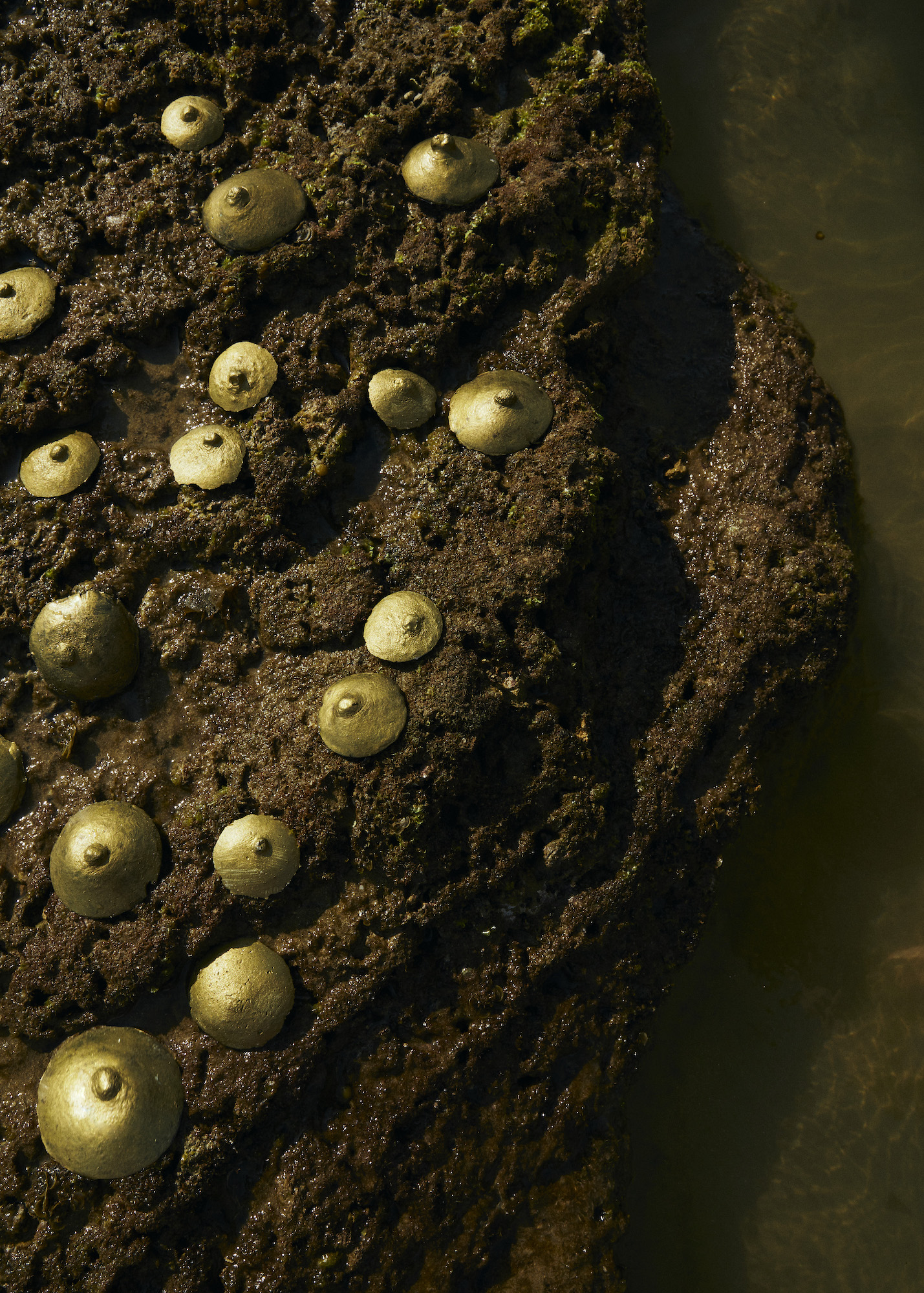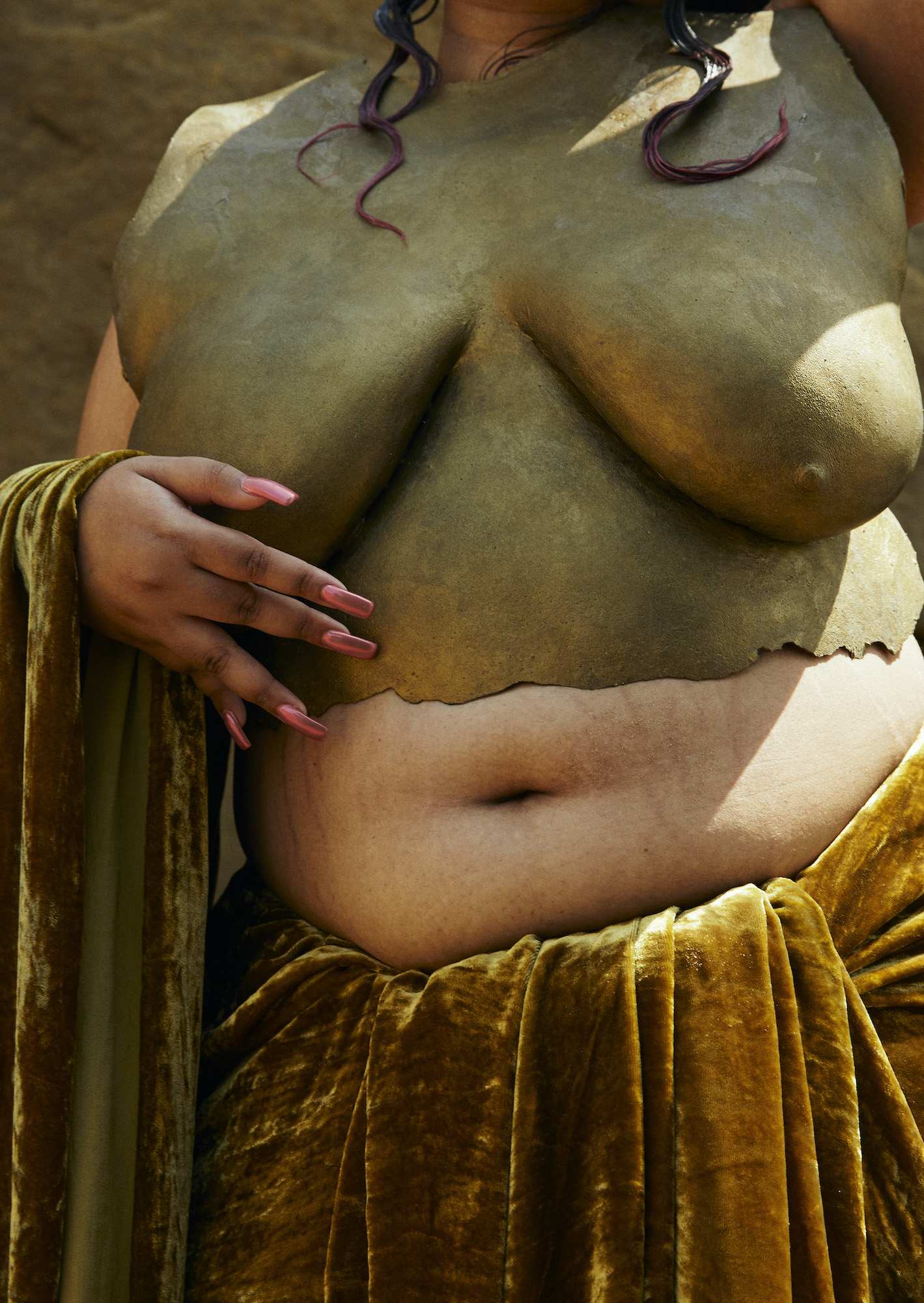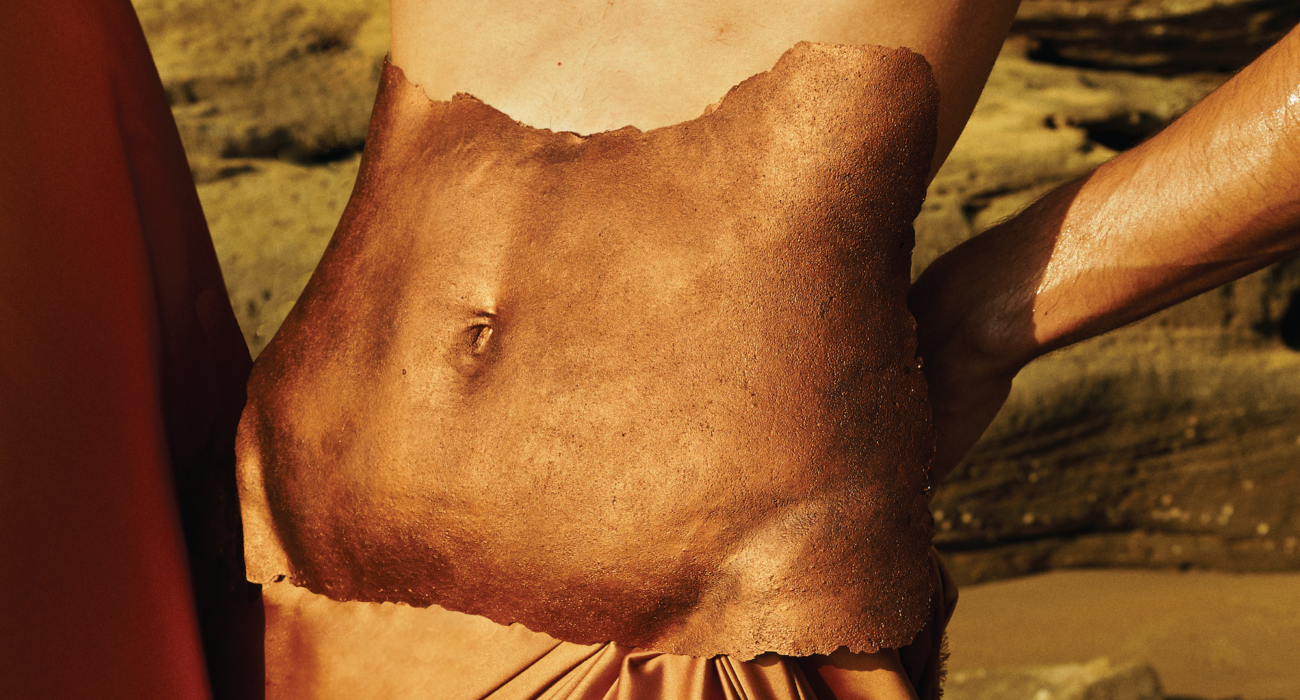
Hannah Traore Gallery is pleased to present Beghairati Ki Nishaani: Traces of Shamelessness, a solo exhibition of work by Misha Japanwala. This new collection comprises a historical record of artists, activists, and beghairats in Japanwala’s native Karachi, Pakistan. Beghariat, meaning ‘shameless’ in Urdu, is a judgemental term that the artist strives to redefine as a tool for liberation. Documenting her community through moldings of the body, Japanwala preserves the stories of femme, queer, and trans lives in Pakistan, compiling a visual archive of their resistance and resilience.
The core collection of breastplates began with Japanwala’s consideration of how artists can shape history through the work they make. Who controls the narrative of past lives? What images will be discovered by future generations? How can artifacts from marginalized communities be protected in the face of patriarchy? In a time when the geography and people of Karachi are at risk of being lost due to impacts of climate change and authoritarianism, the artist hopes to create these moldings as a persistent armor of the spirit—commemorating bodies in a truthful, holistic, and inclusive way.
For the series Hands of a Revolution, the artist reached out to directors, comedians, activists, educators, writers, journalists, photographers, artists, and curators who are building a legacy rooted in redefining shamelessness. Among her muses are public figures like Sharmeen Obaid Chinoy, a filmmaker who has activated her voice to advocate for the rights of marginalized people in Pakistan and support women by ensuring they have a platform. Dua Mangi, another muse, is a woman who was kidnapped in Karachi in 2019; rather than express concern for her wellbeing, conservatives shamed her for the modern attire she wore in photographs circulated after her abduction. Since returning to safety, Mangi has pursued a career in law focused on championing women’s rights. These are individuals who are shaping their lives in intentional ways that embrace beghairati, forging a path for a more liberated society in Pakistan. Molding their hands, she honors a physical symbol of action, autonomy, and solidarity.
For another series, Japanwala invited femmes based in Karachi to anonymously participate in her work by having their nipples molded. Friends and strangers alike—from age eighteen to sixty-five—gathered at Japanwala’s home studio, sharing personal histories through their bodies. One woman had undergone mastectomies and allowed the artist to mold her scars; a recently divorced woman molded her breasts as a gesture of her new lease on life; a woman battling cancer came to have her nipples cast before they were surgically removed the following day; a young trans woman participated as a means of crafting a new relationship to her body that feels truthful to her soul. Inverted, pierced, scarred, and textured, these interlinking nipple moldings form a dupatta, a chainmail of people who dare to live on their own terms.
Developing this body of work, the artist explored artifacts from the Mohenjo-daro and Harappa civilizations of the Indus Valley. In these archives, there are countless depictions of humans of all shapes and sizes, bodies that are trans and non-binary, revealing a civilization with a historically diverse spectrum of identities. Coating her plates in bronze, copper, and gold, and applying chemicals to their surface to create an aged effect, Japanwala imagines her work as if excavated hundreds of years from now, washing ashore the collective memories of those who forged a life rooted in agency, love, and possibility.
Hannah Traore Gallery is pleased to present Beghairati Ki Nishaani: Traces of Shamelessness, a solo exhibition of work by Misha Japanwala. This new collection comprises a historical record of artists, activists, and beghairats in Japanwala’s native Karachi, Pakistan. Beghariat, meaning ‘shameless’ in Urdu, is a judgemental term that the artist strives to redefine as a tool for liberation. Documenting her community through moldings of the body, Japanwala preserves the stories of femme, queer, and trans lives in Pakistan, compiling a visual archive of their resistance and resilience.
The core collection of breastplates began with Japanwala’s consideration of how artists can shape history through the work they make. Who controls the narrative of past lives? What images will be discovered by future generations? How can artifacts from marginalized communities be protected in the face of patriarchy? In a time when the geography and people of Karachi are at risk of being lost due to impacts of climate change and authoritarianism, the artist hopes to create these moldings as a persistent armor of the spirit—commemorating bodies in a truthful, holistic, and inclusive way.
For the series Hands of a Revolution, the artist reached out to directors, comedians, activists, educators, writers, journalists, photographers, artists, and curators who are building a legacy rooted in redefining shamelessness. Among her muses are public figures like Sharmeen Obaid Chinoy, a filmmaker who has activated her voice to advocate for the rights of marginalized people in Pakistan and support women by ensuring they have a platform. Dua Mangi, another muse, is a woman who was kidnapped in Karachi in 2019; rather than express concern for her wellbeing, conservatives shamed her for the modern attire she wore in photographs circulated after her abduction. Since returning to safety, Mangi has pursued a career in law focused on championing women’s rights. These are individuals who are shaping their lives in intentional ways that embrace beghairati, forging a path for a more liberated society in Pakistan. Molding their hands, she honors a physical symbol of action, autonomy, and solidarity.
For another series, Japanwala invited femmes based in Karachi to anonymously participate in her work by having their nipples molded. Friends and strangers alike—from age eighteen to sixty-five—gathered at Japanwala’s home studio, sharing personal histories through their bodies. One woman had undergone mastectomies and allowed the artist to mold her scars; a recently divorced woman molded her breasts as a gesture of her new lease on life; a woman battling cancer came to have her nipples cast before they were surgically removed the following day; a young trans woman participated as a means of crafting a new relationship to her body that feels truthful to her soul. Inverted, pierced, scarred, and textured, these interlinking nipple moldings form a dupatta, a chainmail of people who dare to live on their own terms.
Developing this body of work, the artist explored artifacts from the Mohenjo-daro and Harappa civilizations of the Indus Valley. In these archives, there are countless depictions of humans of all shapes and sizes, bodies that are trans and non-binary, revealing a civilization with a historically diverse spectrum of identities. Coating her plates in bronze, copper, and gold, and applying chemicals to their surface to create an aged effect, Japanwala imagines her work as if excavated hundreds of years from now, washing ashore the collective memories of those who forged a life rooted in agency, love, and possibility.
